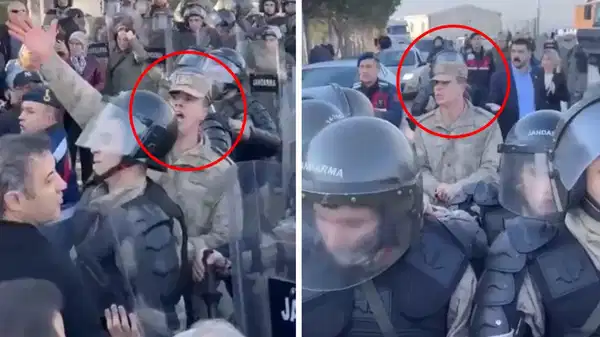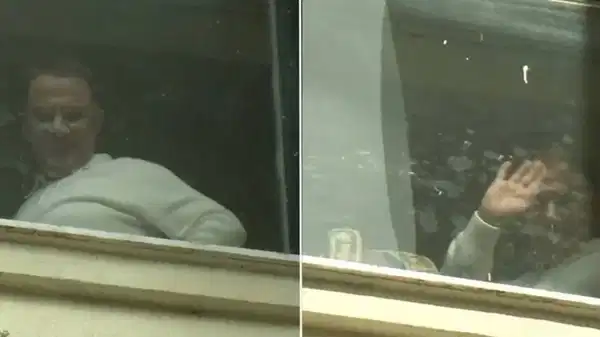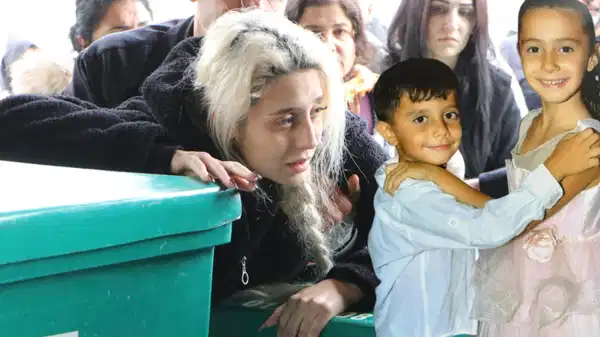
It has been a full ninety days. Prosecutor Murat İnam, one of the accused in a FETO membership trial in which the indictment was drafted within one hour, has still not drafted the indictment against our paper’s ten columnists and managers whose remand he sought a full ninety days ago. This wait has turned into aggravated remand in the full sense in prison. Our columnists and managers, who have been deprived of the right to letters and have been cut off from the outside world, are relieved of their longing for their families in open visits without being separated by a glass panel once every two months.
Within the operation to silence our paper, first ten of our columnists and mangers were remanded in November 2016, followed by our paper’s reporter Ahmet Şık on 30 December 2016. Lawyers are going to and fro between our ten columnists and managers, who were remanded on flight risk grounds by Istanbul Penal Bench judge Mustafa Çakar, and the judicial complex, and the writers and managers have been several times to the Press Prosecution to make statements. With it emerging that prosecutor Murat İnam was one of the accused in a FETO membership trial, Justice Minister Bekir Bozdağ concluded that this situation was ‘unfortunate,’ and said, ‘It would be more correct for this not to have happened. If only such a duty had not been assigned, it would have been better.’ In spite of the ‘unfortunate situation,’ prosecutor İnam is still conducting the investigation and has yet to draft the indictment despite the passage of ninety days. The wait for the indictment has been turned into a de-facto punishment.
Subjective detention
Our ten columnists and managers were asked about reports and opinion pieces over which charges have been dropped or proceedings are pending at their prosecution interrogation at police headquarters. Cited as the basis for the accusations are an expert’s report by an unknown person, witness statements made the day after the raid and opinion pieces by one of our paper’s former managers, Alev Coşkun, and columnists of the Aydınlık newspaper, CHP MP Mustafa Balbay’s tweet: ‘At Cumhuriyet everything from FETOism to Kurdism goes, but it is forbidden to write as a CHP MP’ and Oray Eğin’s column published on 22 November 2015 in the Sözcü newspaper. All of the material cited in support of the ninety-day detention takes the form of subjective pronouncements rather than concrete evidence.
‘Report’ that is withheld like a secret
The prosecution made known during the interrogation that there was an expert’s report in the file and the accusations were based on this report. However, the report itself has neither been furnished, nor has it been shown in printed form. Information about this report is restricted to quotes made at the time our ten columnists’ and managers’ statements were taken at police headquarters. The report was requested when statements were taken, but this request was denied, with it said that there was a confidentiality order over the file. The report was also requested in a petition following remand. However, prosecutor Murat İnam denied this request citing as grounds the Decree with the Force of Law number 668 and Article 153 of the Code of Penal Procedure (CPP). However, there is no provision in the decree with the force of law and Article 153 of the CPP that includes the confidentiality of experts’ reports. In fact, Article 153 of the CPP provides that experts’ reports may not be subject to confidentiality and may not be withheld from the defence. No answer has even been forthcoming in the proceedings to the question who the report was drafted by. It thus remains unknown if the report was drafted by persons who bear a grudge against our columnists and managers. From what appears in the statement records, the report includes the wording, ‘We see that Cumhuriyet newspaper carried reports that, by concealing the truth and acting in keeping with the aims of terrorist organisations (FETO), aimed at inciting domestic insurrection and making the country ungovernable.’ This allegation, however, is based purely on comments having the character of gossip by a number of journalists who are expressing a reaction to our paper and whose names are not even known. In fact, the statement records that extend to 30-40 pages consist mostly of direct quotes from these articles.
Who is the expert?
Situations requiring an expert’s report are governed in Article 66 of the CPP. The statutory article indicates that expert examination may be requested regarding questions whose reply requires expertise or special or technical knowledge. In view of the subjective assessment made in the report, what kind of technical knowledge in relation to the reports on which the accusations are based did the prosecution make recourse to? Did the prosecution ask the expert, ‘How is FETOism conducted through media channels?’ Does there exist a specialised branch of expertise as to how FETOism is conducted? If so, who is this expert? None of these questions have been answered in ninety days.
Applications for release, particularly objections to remand, have been made a total of three times to the penal benches of the peace, which, on the closure of the courts with special powers, have been granted wide powers of apprehension, arrest, search-seizure and remand. Even if the individual penal benches of the peace have varied, they have denied these applications in rulings that are copies of one another. Istanbul Penal Bench of the Peace No 7, which conducted the first review of the remand of the nine people detained in the first wave of the operation, issued a duplicate ruling in which it listed the reports under investigation, as in the remand order. Istanbul Penal Bench of the Peace No 12, which conducted the second review of remand, asserting that the evidence had not yet been gathered, listed stock reasons such as flight risk, the seriousness of the charges and the inadequacy of bail conditions. The same reasons were listed in the monthly review of the remand of our paper’s Executive Board Chair, Akın Atalay, who was remanded on flight risk grounds following his voluntary return to the country, and it was alleged that there was concrete evidence to suggest there was a flight risk.
Visiting restricted
A whole host of restrictions are applied during visits by lawyers to our columnists and managers at Silivri Prison where they are being held. Our managers’ and columnists’ lawyers initially objected to this order on 25 November 2016 on the grounds that the restrictions do not even comply with the Decree with the Force of Law number 667 on which they are based. In the Decree with the Force of Law, enumeration is made of the crimes cited as grounds for remand that warrant restrictions of this kind. However, the crimes of which our remanded columnists and managers are accused do not number among these crimes. Hence, the ongoing restrictions do not comply with the Decree with the Force of Law. In fact, the latest objections made to these restrictions are still being examined by the bench applying them.
Eyes are on the Constitutional Court
Individual applications have also been made to the Constitutional Court on behalf of our remanded columnists and managers. It is pointed out in the applications that through the remand order there has been violation of the rights to ‘personal security and freedom’ and ‘freedom of thought and publication’ and of the ‘limitation on use of restrictions on rights’ stipulated in Article 18 of the European Convention on Human Rights. However, there are 65,000 files before the Constitutional Court that postdate the proclamation of the state of emergency alone, and the seven-person commission established under the Decree with the Force of Law number 685 will examine these65,000 files.
Aggravated remand
Our eleven colleagues at Silivri have been sentenced to aggravated remand in the full sense. This means that they may receive visits from their lawyers on one day for one hour a week and by a total of three lawyers. These visits take place in the company of prison staff and discussions in the course of visits are recorded and documents between them and their lawyers are also seized. Apart from visits on one day for one hour per week by family members, on the proclamation of the state of emergency, open visitation rights by family members one day per month have been reduced to once every two months. Visitation rights by three non-family members they themselves nominate have been removed and telephone call rights have been restricted to once every fifteen days and limited to ten minutes. Just as they are unable to receive letters from the outside, the letters they write are not delivered to friends and family on the outside, either. They are also denied access to books, magazines and opposition television stations in prison.















